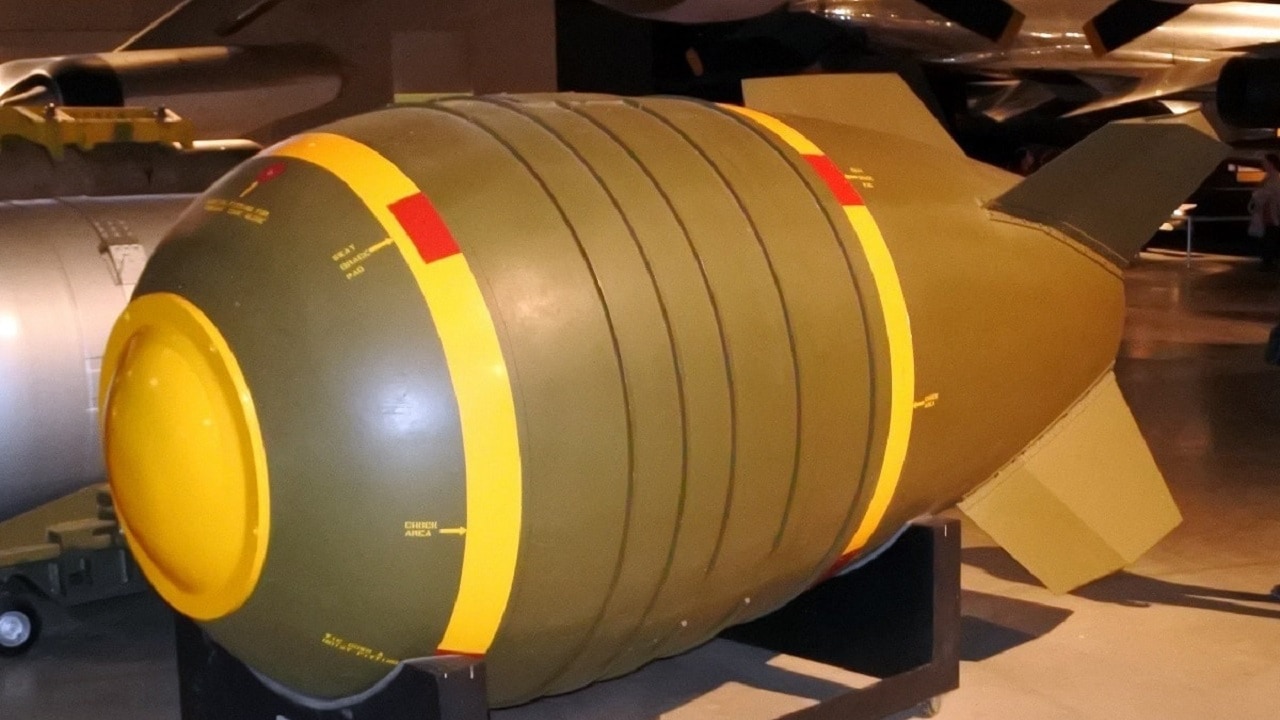Russian President Vladimir Putin continues to demonstrate not only his strategic shortfalls, but his persistent bluster. His latest announcement that he will deploy tactical (non-strategic) nuclear weapons to Belarus is but another example of fear-mongering with no substance and no coherent escalation of the nuclear threat.
Putin may deploy non-strategic nuclear weapons to Belarus—and in fact he may have already—but that does next to nothing to increase the level of risk or improve Russia’s strategic or tactical situation in the war in Ukraine. Russia possesses a wide array of platforms for launching non-strategic nuclear weapons that can strike targets within Ukraine and Europe from Russian soil, including air-to-surface missiles, short-range ballistic missiles and gravity bombs. Positioning these weapons in Belarus won’t alter the threat landscape. So, what’s behind this move?
Putin’s nuclear rhetoric has so far proven to be exactly that: pure rhetoric designed to strike fear in those who still believe his threats. He has a history of making or signalling threats through the production of modernised weapon systems that do little if anything to enhance his strategic position. Putin clearly feels the need to continually remind the West that Russia possesses nuclear weapons and hence the ability to escalate the war in Ukraine.
In the case of Belarus, Putin is yet again reminding the West not only that he has nukes, but also that he still has friends. This is a desperate ploy to frighten the West by an autocrat who has lost his geostrategic credibility and dispelled any remaining myths that he is a mastermind. Putin’s continued nuclear bluster only serves to further illustrate the limitations and ineffectiveness of the conventional Russian military, which has suffered setback after setback in Ukraine.
Speaking on a state television program, Putin likened his actions to those of the US stating: ‘There is nothing unusual here either: firstly, the United States has been doing this for decades. They have long deployed their tactical nuclear weapons on the territory of their allied countries, NATO countries, in Europe.’ This is true. The US has long deployed limited non-strategic nuclear weapons in Europe in bases in Belgium, Germany, the Netherlands, Italy and Turkey. They are the B61 variants, which are gravity bombs that can be dropped from aircraft such as the F-16 Fighting Falcon and PA-200 Tornado.
The difference in this case is that, with the exception of the relatively new low-yield submarine-launched ballistic missile (SLBM) warhead, the W76-2, the US platforms based in Europe are the only US weapons capable of fulfilling a non-strategic nuclear-strike option to counter the threat from Russia. The low-yield SLBM, although offering an extremely credible non-strategic option, lacks operational flexibility without the addition of forces based on NATO soil. This is in contrast to the vast variety of non-strategic nuclear weapons that Russia already deploys, ensuring complete flexibility of warhead delivery options.
The other difference is that of the US commitment to transatlantic security. The nuclear weapons based in Europe act to assure NATO allies that the US is committed to the alliance with tangible escalatory and deterrent options. In the face of Putin’s aggression and brutality, this commitment is critical to sending a message not only to allies, but also to Putin. Bullies exploit weaknesses. By forward-positioning non-strategic nuclear weapons, the US is signalling to Putin that it will stand by its allies and use nuclear weapons if push comes to shove. Belarus, on the other hand, is under no realistic threat from NATO. The deployment of Russian nuclear weapons in Belarus only acts to make it a potential target for non-strategic nuclear strikes in the event of escalation to the point of having to neutralise this threat. It’s foolish of President Alexander Lukashenko to agree to position Putin’s nuclear weapons in Belarus in exchange for an increase in his nation’s vulnerability without any military advantage.
Through his actions, Putin poses a threat to NATO and the region. He has demonstrated his complete brutality in his ongoing war in Ukraine, which is blatant imperialist-style territorial expansion. His desperation is apparent as he continues to find ways to rattle his nuclear sabre in an attempt to frighten the US and allies so that they withdraw support for Ukraine. This desperation and associated bluster don’t by any means rule out the potential for Putin to actually use non-strategic nuclear weapons, but it does demonstrate his conventional military weakness and his fear of continued allied support of Ukraine.
The US and its allies, including NATO and Australia, must continue to support the Ukrainian people who valiantly fight this wanton aggression. They must continue to show resolve and a united front against a bully who has proven his contempt for the rules-based international order.
MORE: PAK DA – Is Russia New Stealth Bomber a Joke?
MORE: Was the F-14 Tomcat Retired Too Early?
MORE: Nimitz-Class – The Best Aircraft Carrier Ever?
Russia’s nuclear arsenal is capable, immense and dynamic. It can be countered, however, with appropriate US deterrence. The deployment of Russian nuclear weapons to Belarus will not swing the advantage to Putin.
Adam Cabot has a master’s in international relations from Monash University and is currently researching nuclear strategy.

